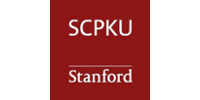This is a past event. Registration is closed. View other Stanford events.
When America went to bed the night before the 2016 American elections, many people had read predictions made by aggregators of thousands of pre-election polls and took for granted that Hillary Clinton would be elected president. That failure of pre-election polls in America appeared to be the final nail in the coffin, because it followed similar spectacular failures in Canada, the U.K., Israel, and elsewhere.
Should we conclude that surveys are no longer a viable means for citizens to have a voice in the process of democratic decision-making? In this presentation, Jon Krosnick will tell two stories of research findings that cast the events of 2016 in a completely different light, changing our understanding of that year’s election and suggesting new ways to view and conduct elections in the future. His lecture will illustrate the value of quantitative social science for enhancing processes of modern governance.

